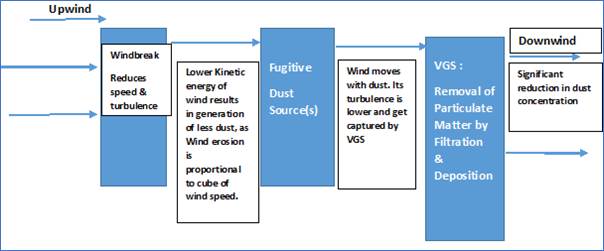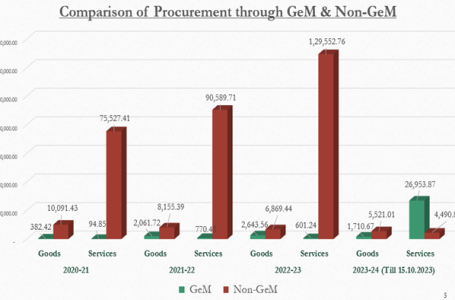CMPDIL Invents New Dust Control Technology

Useful in Coal Mines, Thermal Power Plants, Railway Sidings & Ports
New Delhi, Jan 12, 2023: In order to minimize and control the fugitive dust in mining areas, Central Mine Planning and Design Institute Limited (CMPDIL), Ranchi (a consultancy subsidiary of Coal India Limited) has invented a “System and Method for Controlling Generation and Movement of Fugitive Dust” and obtained patent for the same in December, 2022.
This system can be used in mines, thermal power plants, railway sidings, ports, construction sites wherein coal or other minerals/fugitive materials are stored under open sky. Apart from reducing the dust generation from open sources, it will also provide noise attenuation.
Coal/Lignite PSUs under the Ministry of Coal consistently strive to produce quality coal in an environmentally responsible manner to meet the country’s energy needs. To prevent or mitigate air pollution caused by coal mining and allied activities, coal/lignite PSUs are adopting various measure. Fugitive dust is a form of particulate matter that contributes to air pollution that is generated from various sources which are exposed to air and not discharged into the atmosphere through a confined flow stream.

Synchronized Application of Windbreak and Vertical Greenery System (VGS) for Fugitive Dust Control – a New Idea

Synchronized application of Wind break and VGS
The present invention relates to the synchronized application of windbreak (WB) and vertical greenery system (VGS) for reducing generation and dispersion of fugitive dust. The WB and VGS are erected in the upwind and downwind direction with respect to the fugitive dust source(s) respectively. The WB reduces the speed of the wind approaching towards the source and hence, it reduces the intensity of the ambient air to pick up dust while blowing over the source. The VGS acts as a filter and reduces the quantity of the residual dust moving along with the wind towards the receptors in the down-wind direction. Therefore, there is a significant reduction in the concentration of the dust in the ambient air at various receptors located in the down-wind direction. This system has been depicted in the Figure below:






